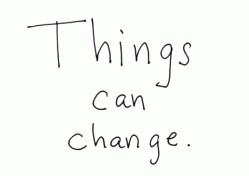Having gone through therapy for my anxiety during my professional tennis playing days, i’ve seen it all. I’ve been through the whole group therapy thing as well as the 1 on 1 anxiety and panic counselling for many years, and my conclusion is that there is a potential danger that exists with anxiety therapy for the sufferer.
It was recently brought to my attention from a long time friend of mine who’s also been a psychotherapist for over 9 years, that making a living for many (not all) anxiety therapists keeps them from telling you a very important truth, and that truth is that:
You Can Actually Learn The Secrets To Curing Your Anxiety In 10 – 15 Minutes
Of course the ‘professionals’ would be losing a great deal of business and steady income if they told you this. Notice how I said learn though, and not end your anxiety in 10 – 15 minutes. You the one suffering from anxiety must take full responsibility for your condition, and stop the search for the ‘magic pill’ or technique once and for all.
I See Incredible Changes In People Daily Through Cognitive Behavioral Therapy
These people are no different then you. But these people accepted the fact that there is no magic cure out there for anxiety, and began to take their issues into their own hands instead of looking for someone else to tell them what to do. Think about the time and money you would be saving from anti anxiety medications and constant therapy if only you built up the will power for a short amount of time, to learn how to turn your anxiety switch off through CBT.
Anxiety Can Be A Complex Issue For Many, But This Doesn’t Mean It Needs To Take Years To Calm Your Nerves And Desensitze You From Your Fears
Many times we become anxious over things that simply don’t exist, we tend to imprison ourselves unconsciously when in fact we ought to be free and enjoying life a hell of a lot more. Remember also, that to be in an anxious state and in desperate need for professional help doesn’t mean that you are ‘crazy.’ It’s certainly ok to have deep legitimate feelings of depression and anxiety sometimes, and asking for help temporarily could be a good thing. But you must remember that dwelling on your ‘melancholic moods’ won’t make things go away. You must step up and begin to do your part, aside from all the external help you may be getting right now for your panic and anxiety condition.
Begin To Accept And Let Go
So many times we deny and don’t accept our imperfections. We completely hate ourselves and how we may look, as well as put a huge emphasis on how others perceive us. Many people that come to me for help with stress and anxiety in their lives don’t even like their own voice! While others are down right embarrased because of their weight, or lack of weight even.
We Can’t Let The Illusion Of Beauty, Success And Wealth From The Media Be The Source Of Our Misery
Begin comparing yourself to others less today. You may find that the root of much of your stress and anxiety lies right there, doesn’t it? Have you ever thought about where this anxiousness and hate is coming from? I know for a fact that I was in a deep trance for many years, living with an anxiety disorder and hating the universe for ‘making me this way.’ But deep down I knew that wasn’t true, I made myself this way consciously and unconsciously.
Don’t Let Anxiety Dominate Your Life.
Understand that anxiety is often an introspective activity, and it thrives on isolation. But you don’t have to be alone, you are not strange or inferior. The moment you learn to accept who and what you are is the moment you begin to understand that you are not set apart from everybody else. Learn to let go through CBT and begin to free yourself from anxiety.











